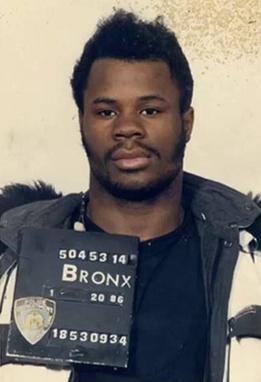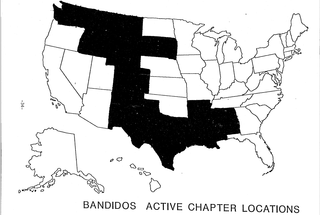
The Almighty Latin King and Queen Nation is one of the largest Caribbean and Latino street and prison gangs worldwide. The gang was founded by Puerto Ricans in Chicago, Illinois, in 1954.

Homicide: A Year on the Killing Streets is a 1991 book written by Baltimore Sun reporter David Simon describing a year spent with detectives from the Baltimore Police Department Homicide Unit. The book received the 1992 Edgar Award in the Best Fact Crime category.
The blue wall of silence, also blue code and blue shield, are terms used to denote the informal code of silence among police officers in the United States not to report on a colleague's errors, misconducts, or crimes, especially as related to police brutality in the United States. If questioned about an incident of alleged misconduct involving another officer, while following the code, the officer being questioned would perjure themselves by feigning ignorance of another officer's wrongdoing.
In the United States, Stop Snitchin' or Snitches Get Stitches is a call for informants not to cooperate with law enforcement.

The Baltimore Police Department (BPD) is the municipal police department of the city of Baltimore, Maryland. Dating back to 1784, the BPD, consisting of 2,935 employees in 2020, is organized into nine districts covering 80.9 square miles (210 km2) of land and 11.1 square miles (29 km2) of waterways. The department is sometimes referred to as the Baltimore City Police Department to distinguish it from the Baltimore County Police Department.

The United States Penitentiary, Coleman I and II are high-security United States federal prisons for male inmates in Florida. It is part of the Coleman Federal Correctional Complex and is operated by the Federal Bureau of Prisons, a division of the United States Department of Justice. USP Coleman I was opened in 2001, and in 2004 Clark Construction completed a 555,000-square-foot (51,600 m2) additional component for USP Coleman II.

Larry Davis, later known as Adam Abdul-Hakeem, was a man from New York City who gained notoriety in November 1986 for his shootout in the South Bronx with officers of the New York City Police Department, in which six officers were shot. Davis, asserting self-defense, was acquitted of all charges aside from illegal gun possession. Davis was later convicted in April 1991 of a Bronx drug dealer's 1986 murder. In 2008, Davis died via stabbing by a fellow inmate.

Kathryn Johnston was an elderly woman from Atlanta, Georgia who was killed by undercover police officers in her home on Neal Street in northwest Atlanta on November 21, 2006, where she had lived for 17 years. Three officers had entered her home in what was later described as a 'botched' drug raid. Officers cut off burglar bars and broke down her door using a no-knock warrant. Police said Johnston fired at them and they fired in response; she fired one shot out the door over the officers' heads and they fired 39 shots, five or six of which hit her. None of the officers were injured by her gunfire, but Johnston was killed by the officers. Police injuries were later attributed to friendly fire from each other's weapons.
The 39th District Corruption Scandal refers to a persistent pattern of brutality and corruption among a cadre of Philadelphia Police Department officers, primarily from the Department's 39th District. The scandal emerged in late 1995 and received nationwide attention by 1997, eventually resulting in an investigation by Human Rights Watch. Hundreds of people were involved in the incidents that occurred in North Philadelphia in the early 1990s. Some individuals are notable due to their direct participation, and others for their participation in related events, particularly the legal proceedings of the conviction of Mumia Abu-Jamal for the murder of Officer Daniel Faulkner.

Curtis Stovall Anderson is an American politician, lawyer and former broadcast journalist. He was first elected to the Maryland House of Delegates in 1983, was the chairman of the Baltimore City Delegation, and past chairman of the Legislative Black Caucus of Maryland. After serving 12 years, he was elected again in 2002, and served until his retirement in 2023. He was a delegate to the Democratic National Convention in 1992 (Clinton) and 2008 (Obama).

Edward Sapiano was a Canadian defence lawyer, based in Toronto, Ontario, notable for his role in many high-profile criminal cases. He initiated Canada's largest criminal investigation of police, resulting in the arrest and prosecution of several Toronto police officers and was also involved in the so-called Toronto 18 terrorism trial. Edward Sapiano is also noted for demanding immediate DNA testing of his client shortly following the 1996 arrest of the suspected "North York serial rapist", leading to his client Jeremy Foster's full vindication, despite a false confession to the crime. In his quest to get illegal guns off the street, Sapiano also created the only lawyer-operated gun amnesty program available in North America, Piece Options. He is also known for starting a database of rulings and judgements to track alleged misconduct among Toronto-area officers which was then retrievable for cross-examinations in other cases by other lawyers. Edward Sapiano, after putting his practice on hold for two and a half years due to kidney failure, returned to court in 2017 for the Andrea White murder trial. Edward died on March 21, 2020, from complications of kidney disease and was cited to be the first lawyer in Canada to practise while undergoing 10 hours of daily dialysis. He was regularly featured by media outlets, including The Globe and Mail, CBC, and the New York Times commenting on criminal law issues.

The Highwaymen Motorcycle Club is a one-percenter outlaw motorcycle club. The club was formed in Detroit, Michigan in 1954. The club has undergone a number of large-scale police and FBI investigations, most notably in 1973, 1987 and 2007. In the early 1970s several members were convicted of bombings and raids of the homes and the clubhouses of rival motorcycle clubs.
The Camden Police Department (CPD) was the primary civilian law enforcement agency in Camden, New Jersey, until it was dissolved on May 1, 2013, when the Camden County Police Department Metro Division took over full responsibility for policing the city of Camden.

eTrace is an Internet-based firearm trace request submission system, developed by the United States' federal government, Bureau of Alcohol, Tobacco, Firearms and Explosives, that provides for the electronic exchange of traced firearm data in a secure internet-based environment. Participating law enforcement agencies with access to the internet can acquire 24/7 real-time capabilities to electronically submit firearm trace requests, monitor the progress of traces, retrieve completed trace results, and to query firearm trace related data in Bureau of Alcohol, Tobacco, Firearms and Explosives (ATF) firearms registration database at the National Tracing Center. Firearms tracing is the systematic tracking of the movement of a firearm from its creation by the manufacturer or its introduction into U.S. commerce by the importer, through the distribution chain to the first retail purchase. Release 4.0, a bilingual version of eTrace was deployed in December, 2009 for the benefit of Spanish-speaking countries.
The Illegal drug trade in Puerto Rico is a problem from a criminal, social, and medical perspective. Located in the Caribbean, Puerto Rico has become a major transshipment point for drugs into the United States. Violent and property crimes have increased due in part to dealers trying to keep their drug business afloat, using guns and violence to protect themselves, their turfs, and drug habits.

Crime in Finland is combated by the Finnish police and other agencies.

Michael F. Dowd is a former New York City Police Department (NYPD) officer, drug distributor, and enforcer for the Dominican American Diaz criminal organization who was arrested in 1992 for running a drug ring out of Suffolk County, Long Island, New York. He is the subject of the 2014 documentary film The Seven Five directed by Tiller Russell and produced by Eli Holzman. The Tiller Russell TV documentary version, Precinct Seven Five (2015), aired on Film4 on June 19, 2020, and also featured interviews with Dowd's co-conspirator and "dirty cop" friend Kenneth "Kenny" Eurell, who eventually became a cooperating Federal witness and wore a wire, in order to further incriminate Dowd and help corroborate his own testimony in exchange for a lenient sentence at trial.

The Seven Five, also known as Seven Five Precinct, is a 2014 documentary directed by Tiller Russell, and produced by Eli Holzman, Aaron Saidman, and Sheldon Yellen. The film looks at police corruption in the 75th precinct of the New York Police Department during the 1980s. The documentary focuses on Michael Dowd and Patrick Eugene McKenna both corrupt DEA agents under cover for 10 years, who were arrested in 1987 leading to one of the largest police corruption scandals in New York City history. The documentary uses footage from the Mollen Commission investigation in 1992 and also provides in-depth commentary from Dowd, Ken Eurell, and Adam Diaz, among others. The documentary premiered at DOC NYC November 14, 2014.
Crime in Puerto Rico describes acts of violent and non-violent crime that take place within the Commonwealth of Puerto Rico.

The Bandidos Motorcycle Club has been designated an outlaw motorcycle gang by the U.S. Department of Justice. The club is involved in drug trafficking, weapons trafficking, prostitution, money laundering, explosives violations, motorcycle and motorcycle-parts theft, intimidation, insurance fraud, kidnapping, robbery, theft, stolen property, counterfeiting, contraband smuggling, murder, bombings, extortion, arson and assault. The Bandidos partake in transporting and distributing cocaine and marijuana, and the production, transportation and distribution of methamphetamine. Active primarily in the Northwestern, Southeastern, Southwestern and the West Central regions, there are an estimated 800 to 1,000 Bandidos members and 93 chapters in 16 U.S. states.













